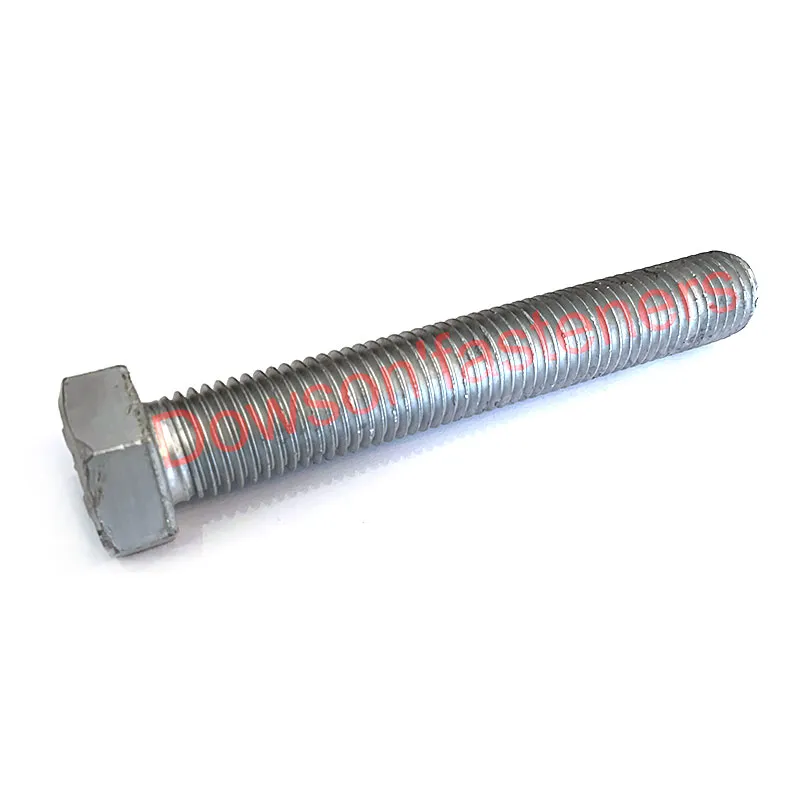UNC, UNF, and UNEF Bolt Threads Explained: How to Choose the Right One for Your Application
2024-10-26
In any construction or manufacturing project, bolts are indispensable for joining materials, creating stability, and ensuring secure assemblies. However, bolt threads—often classified as UNC, UNF, or UNEF—affect the bolt’s grip, durability, and functionality. This guide will take an in-depth look at each of these thread types, helping you choose the best fit for your next project.
What Are Bolt Threads and Why Do They Matter?
Bolt threads are helical structures that allow bolts to engage with nuts or threaded holes, creating a secure connection. There are various ways to categorize bolt threads, with three common types: Unified National Coarse (UNC), Unified National Fine (UNF), and Unified National Extra Fine (UNEF). Each of these types specifies the thread pitch, depth, and overall structure of the threads on the bolt.
1. Unified National Coarse (UNC) Threads
Key Characteristics:
- Coarse Pitch: UNC threads have a lower TPI, meaning fewer threads per inch.
- Greater Strength: The larger, deeper threads provide excellent shear strength, making them suitable for high-stress applications.
- Efficient Assembly: UNC threads are easier and faster to assemble and disassemble, particularly in field installations.
Best Applications:
- Construction and Heavy-Duty Applications: Their robustness makes them a go-to choice for structural components and large machinery.
- Softer Materials: The coarse pitch is ideal for softer metals and plastics, as it resists stripping.
- Quick Assembly Situations: Because UNC threads are easier to assemble, they are used when frequent assembly and disassembly are required.
Pros and Cons:
- Pros: UNC threads offer high durability, resist stripping, and are easy to work with.
- Cons: They may loosen under vibration and do not provide as precise clamping as finer threads.
2. Unified National Fine (UNF) Threads
Key Characteristics:
- Fine Pitch: More threads per inch than UNC threads, providing higher precision in clamping.
- Resistance to Vibration: Finer threads offer greater resistance to loosening in vibrating environments.
- Higher Tensile Strength: Increased thread count and smaller pitch result in higher tensile strength.
Best Applications:
- Automotive and Aerospace: UNF bolts are common in automotive and aerospace industries where precision and vibration resistance are essential.
- Harder Materials: UNF threads are compatible with harder materials, like steel, due to their fine structure.
- High-Precision Situations: Used where precise torque control is essential, as in sensitive instruments.
Pros and Cons:
- Pros: Provide excellent clamping force, are vibration-resistant, and suited to high-tolerance applications.
- Cons: Finer threads are more susceptible to stripping in softer materials, and they require more time for assembly.
3. Unified National Extra Fine (UNEF) Threads
Key Characteristics:
- Extra-Fine Pitch: UNEF threads have a higher TPI than both UNC and UNF, offering even more precision.
- High Friction and Stability: Closely spaced threads provide added friction, helping resist loosening in high-vibration environments.
- Load Distribution: The increased thread engagement allows for a more even load distribution.
Best Applications:
- Precision Engineering: Used in applications requiring exact torque control, like electronics and sensitive instruments.
- Compact Spaces: UNEF threads are ideal where a high number of threads must fit in a confined area.
- High-Tension Environments: Ideal for aerospace and instrumentation applications where maximum thread engagement is required.
Pros and Cons:
- Pros: UNEF threads provide precision, excellent load distribution, and resistance to vibration.
- Cons: They are more challenging to install in softer materials and can strip easily. Assembly also takes longer due to the fine pitch.
Each bolt thread type—UNC, UNF, and UNEF—has distinct benefits and drawbacks. When selecting a bolt, consider the material, environmental conditions, and functional requirements of the project. UNC threads offer ease of assembly and durability for general-purpose use, while UNF threads suit applications needing a finer level of control. Finally, UNEF threads are ideal for high-precision needs in compact spaces. By choosing the appropriate thread type, you ensure your project benefits from optimal strength, precision, and reliability, saving time and reducing the risk of mechanical failures.



